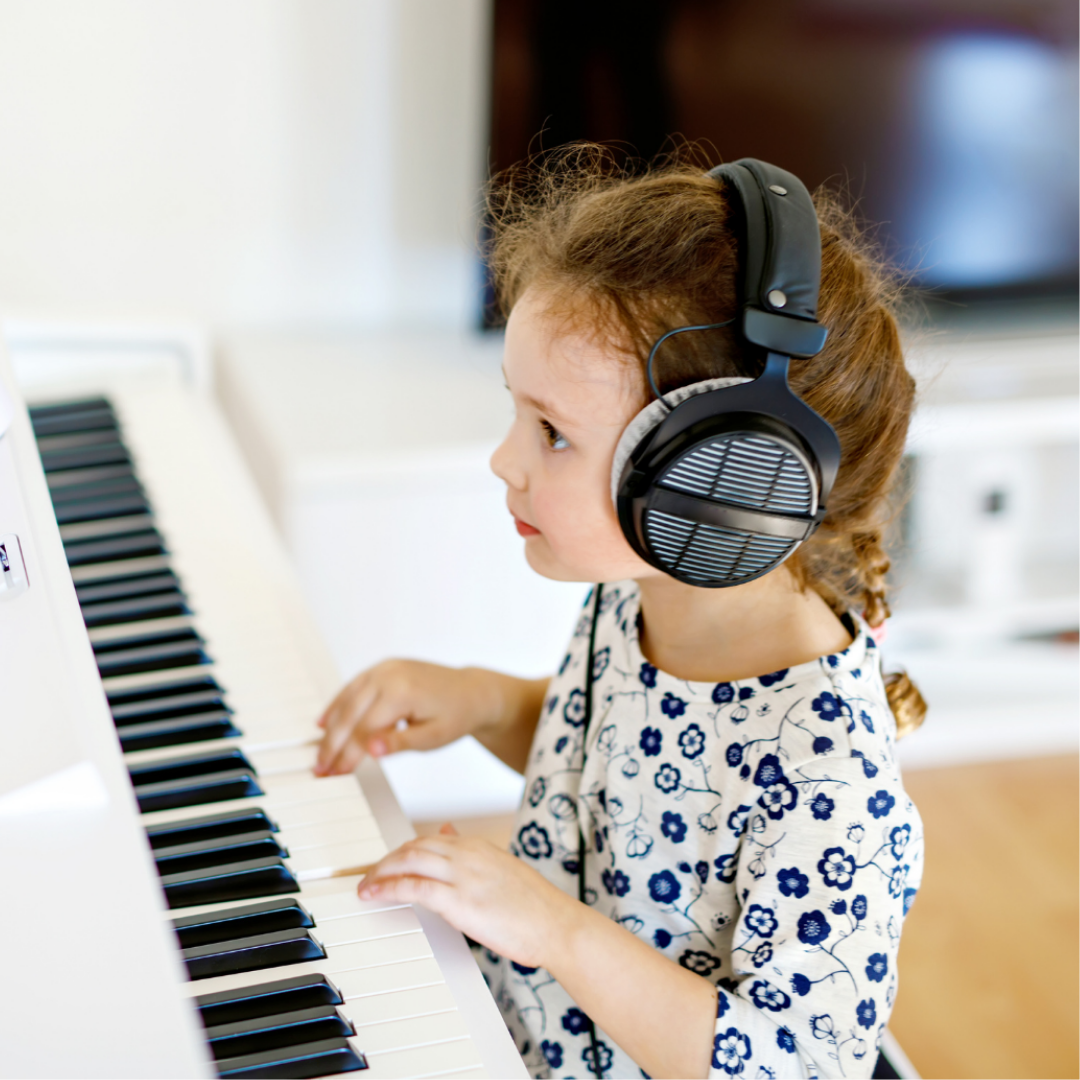When it comes to creating a fully immersive piano playing experience, choosing the right headphones for you when practising on a digital or silent piano is crucial and without a little guidance, can be complicated!
It’s often easy to think ‘I’ll just throw on my usual headphones’, however without a little more understanding on how headphones work and how many are designed, you could be missing out on some seriously amazing sound quality.
Why does it matter?
Ultimately, which headphones you decide to practice with is a lot down to personal preference. If you are fine with playing on regular headphones then that is no problem at all, however when you compare your ‘day to day’ headphones to a real pair of headphones designed for piano playing, you’re going to notice a big difference!
When it comes to sound quality, you do generally get what you pay for and some larger brands do create amazing sound quality for DJing, or general use. As you may expect however, many headphone brands optimise their sound for playing songs on devices when you’re on the go, and NOT piano practice.
This means that the majority of modern headphones will emphasise the bass frequencies to make songs sound better, which is perfect for listening to music, but less so for playing it. These bass frequencies can make the tenor registers of a piano sound 'muddy' and leave you feeling rather unsatisfied. As such, we’d always recommend doing a little more investigating into how your headphones are designed.
On this note, we would also not recommend using wireless headphones for piano practising. Wireless headphones are notorious for generating a sense of latency (late playing) of what you are playing. Especially as you begin to play more complicated pieces with a lot of quick or complex movements, if you are playing something and the sound comes even a fraction of a second too late, it will throw off your playing completely and leave you with a frustrating experience that isn’t what you were looking for.
Where to begin?
When it comes to finding the right headphones for you, we would generally recommend looking at 3 key factors: Comfort, Sound Quality and Ear Coverings
Comfort:
Of course, it’s not always easy to try on your headphones, especially if you’re buying online, however if you are buying from a shop, we’d definitely recommend trying them out! We all have different shaped heads after all, so we’d always recommend choosing a set with an adjustable headband. If you love practising as much as we do, you’ll be wearing these headphones a lot so will want to reduce as much pain and discomfort as possible after long periods of playing, so we’d recommend headphones with some kind of ear padding to keep comfort your number 1 priority!
Sound Quality:
As mentioned, your typical on the go headphones are NOT designed to highlight the subtle nuances of piano playing. As such, it’s important to find headphones that are! For almost all beginner and intermediate players, we would recommend looking at piano specific headphone ranges such as Roland’s RH-A7. Comfortable, stylish and perfectly suited to piano practice, these headphones make a great starting point. They are tuned to suit piano practice, meaning that you won’t be hearing that “muddy effect” that you might find on other headphone brands.
Ear Coverings:
This one is entirely personal preference and depends on how you want to experience the sound of your piano. Closed back vs open air headphones. Most headphones you see are usually closed back headphones. These have a solid outer shell, that doesn’t allow air to pass through the cups.
From the sound perspective, sealed ear cups provide more powerful and deep bass compared to the open-back cups. But their main advantage of closed-back headphones is good noise isolation, making them perfect for playing in noisier environments (background TV noise, kids, traffic, etc.).
Open air headphones however, provide the user with a little more comfort and authentic sound experience. Due to the lack of air flow, closed-back headphones tend to trap heat and moisture and, therefore, they are not very comfortable to wear for extended periods of time. As they allow air to flow through the cups, open air headphones tend to be a little more comfortable compared to open-back headphones. As you do have an air flow however, you are more prone to outside noise seeping in.
So there you have it! A few simple tips on finding the right piano headphones for you! If you’d like a little further assistance, our expert team are on hand to help!


